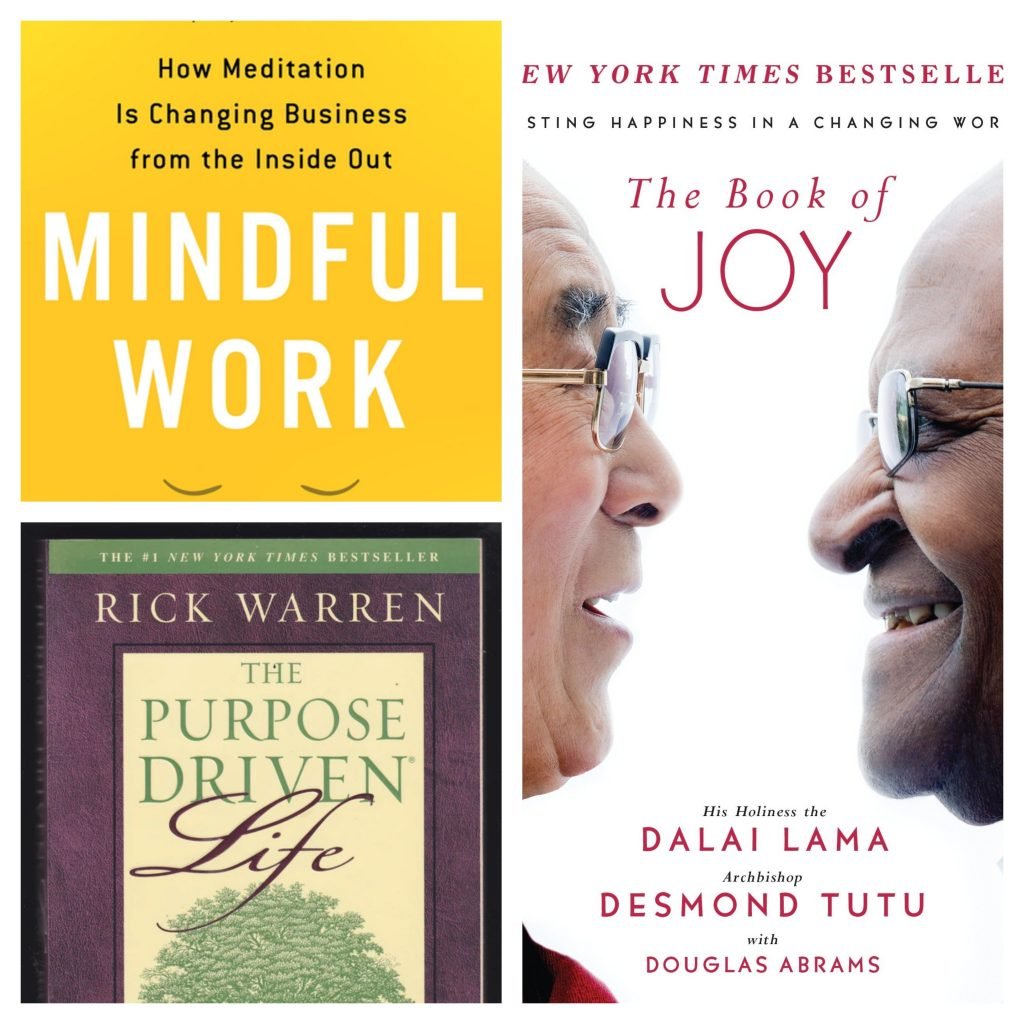The books listed below are some of the best non-fiction books accessible if you’re looking for strategies to discover your inner happiness.
Mindful Work
David Geller
For the past few years, mindfulness has begun to transform the American workplace. Many of our largest companies, such as General Mills, Ford, Target, and Google, have built extensive programs to foster mindful practices among their workers. Mindful Work is the first book to explain how all sorts of businesses and any kind of worker can benefit from meditation, yoga, and other mindful techniques. As a business reporter for the New York Times who has also practiced meditation for two decades, David Gelles is uniquely qualified to chart the growing nexus between these two realms. As he proves, mindfulness lowers stress, increases mental focus, and alleviates depression among workers.
This book broadens our view of the possibilities for calming our thoughts and reviving our frazzled spirits. David Geller, the author of Mindful Work, demonstrates to us mindfulness as a low-cost but incredibly effective method of decompressing.
One of the most prevalent health problems affecting the workforce today is stress. More and more companies are now using mindfulness to tackle this pandemic, and the results have been excellent. The fundamental idea of mindfulness is to encourage us to calm down, evaluate our issues objectively and clearly, and realise what is being asked of us. This helps us successfully approach the challenge and makes our strategy more flexible.
Modern science has validated the scientific underpinnings of mindfulness, which is attained through meditation. Meditation has been shown by MRI to relax the area of our brains responsible for judgement and decision-making. As a result, we can assess our issues with objectivity and identify appropriate answers. Additionally, it has been demonstrated that mindfulness has a beneficial impact on the pre-frontal cortex and the amygdala of the brain. The author discusses the benefits of mindfulness and various methods to practise it in the book Mindful Work.
The Purpose Driven Life
Rick Warren
Before you were born, God knew what your life had in store for you. His hope for you is to discover the life he created just for you–both here on earth, and forever in eternity. Let Rick Warren guide you as you learn to live out your true purpose.
The Purpose Driven Life is more than a book; it’s a road map for your spiritual journey. Combining thoughtful verses from Scripture with timely stories and perspectives from Warren’s own life, The Purpose Driven Life will help you discover the answer to one of life’s most important questions: What on earth am I here for?
This book is about adopting a Christian lifestyle in order to discover the meaning of our lives. In this book, Rick Warren argues that all we need to do is see and accept the fact that the meaning of our life is right in front of us. The various goals of a Christian way of life are suggested in the book.
The first purpose is to accept God and his plans. It is imperative to understand that we have all been created to serve a purpose. And this purpose should be our goal.
The second purpose in our lives is to be grateful to God for all he has provided for us. This gratitude doesn’t have to be expressed in exorbitant ways, even mundane activities of gratitude are enough.
The third purpose is to build relations with fellow humans and believers. This will make our journey of faith much more exciting and we will always have a friend to fall back on.
The fourth purpose is to spread the message of this faith all around. The primary message of faith, as The Purpose Driven Life iterates, is to strive for global peace.
The Book of Joy
Dalai Lama and Desmond Tutu
Nobel Peace Prize Laureates His Holiness the Dalai Lama and Archbishop Desmond Tutu have survived more than fifty years of exile and the soul-crushing violence of oppression. Despite their hardships—or, as they would say, because of them—they are two of the most joyful people on the planet.
In April 2015, Archbishop Tutu traveled to the Dalai Lama’s home in Dharamsala, India, to celebrate His Holiness’s eightieth birthday and to create what they hoped would be a gift for others. They looked back on their long lives to answer a single burning question: How do we find joy in the face of life’s inevitable suffering?
This book aids us in directing our lives toward happiness and overcoming the many obstacles we encounter. Desmond Tutu and the Dalai Lama provide us with numerous guidelines for living in that path.
The first priority in our life is to always keep on learning and to look forward to new challenges and developments. We can stay current with the rapidly changing world if we adopt this approach.
The second priority in our lives is to develop a competitive edge over others. According to The Book of Joy, this is the result of three forces coming together: our current resources, which include our money as well as our knowledge, expertise, and experience; our aspirations and ideals, which also include our objectives; and lastly, global market demand.
The third priority is setting out plans for ourselves. To assist with this, the authors propose a concrete strategy known as Plan ABZ. Plan A outlines our primary areas of interest, Plan B outlines ways to broaden our emphasis, and Plan Z is the failsafe fallback we can use if all else fails.
The fourth priority is to go for an opportunity that we know could help us make a breakthrough in our career.
If we feel good about it, we should pursue it even though it could be uncommon, challenging, and inconvenient to our schedules.
The Book of Joy lists a lot of additional goals that we should be focusing on if we want to carve out a place for ourselves in this world.
